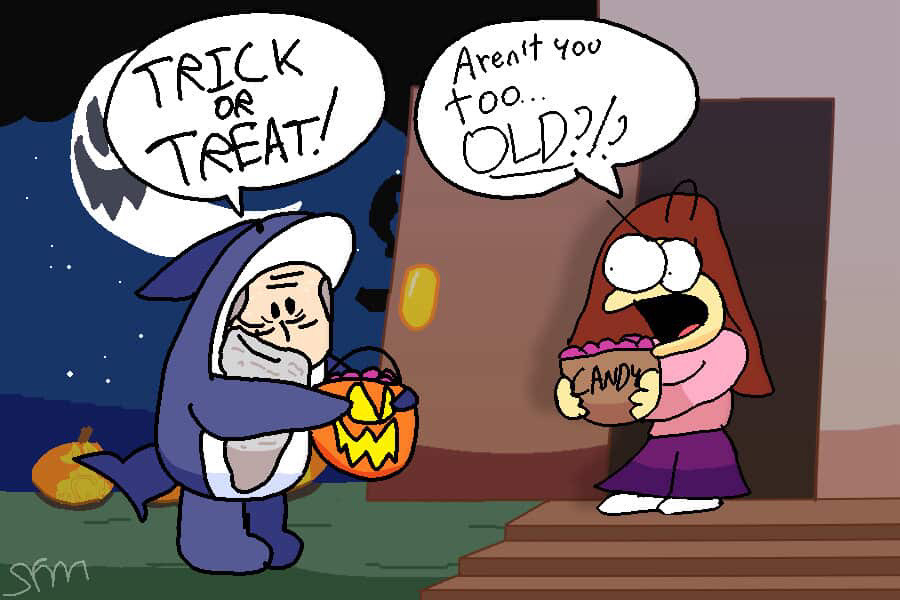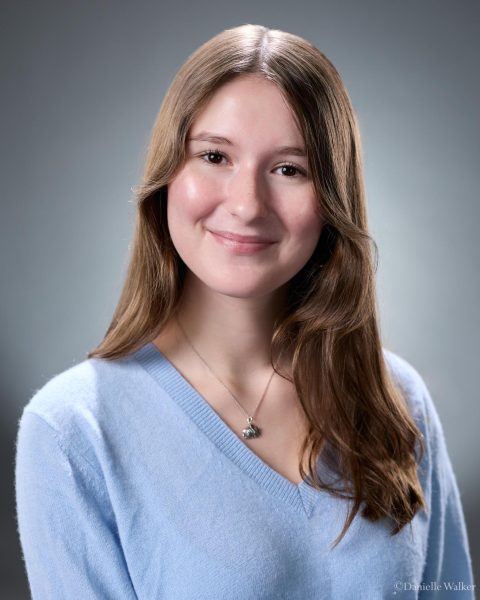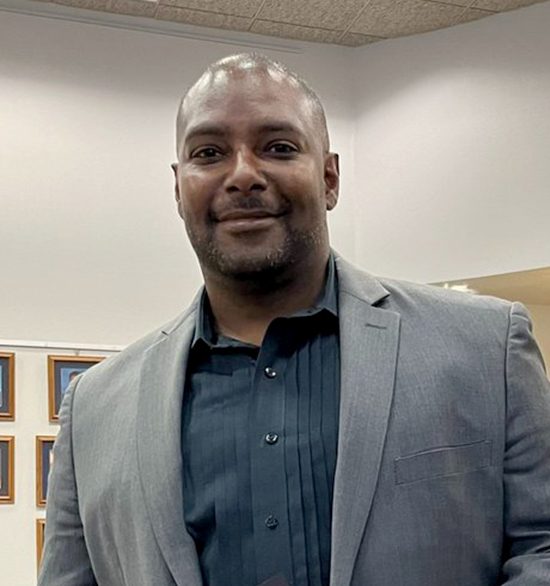
Q: So, why are you running for the school board?
A: Yeah, why am I running for school board. Really? I’m motivated by three things. My commitment to public, to servant leadership. Second is like a belief in the transformative power of education. And the third is window of opportunity. I think we have for Leander ISD to be a model district in Texas. And so in terms of servant leadership, I have about 23 years of program management experience in industries across tech, finance and education, 12 of those being in education. I currently volunteer at my daughter’s school. I’m in the Watchdog program, I volunteer at the high school with parents on patrol and I’m also part of the site based committee. And so, you know, service is just always been a part of my life. And so this is just an extension of serving. I think I have a skill set that can help serve 43,000 students. The second thing I mentioned was this transformative belief in the transformative power of education. I’m a first generation college student. I know from the perspective of a parent, from a former educator, a volunteer, that education is the real key to unlock young people’s future. And so, I believe in public education. I believe in dedicated, you know, having dedicated teachers, a robust academic excellence and access to enriching activities. And I just know the power that can have on a young person’s life. The others I mentioned this opportunity that we have before us. Obviously, Leander is a growing, the Leander ISD in the geography is is a growing geography. And we really do have an opportunity to set the stage on what academic excellence looks like. And so as we kind of enter into this new revolution of what education can be, I think we’re at the forefront of shaping that for Texas, and so I’m just excited to be a part of that.
Q: So you mentioned a bit of this earlier, but, what past experience do you believe makes you qualified to be a school board member?
A: Yeah, as I mentioned, you know, one have experience across various industries. I bring that perspective. I’m a parent. I’m invested in the district. I’ve done leadership and volunteerism at the local level. I have 12 years of experience in education. And so, you know, I just think I bring, you know, I’m a value based leader, forward thinking, data driven and I think that can help serve the young people in the district.
Q: Are you satisfied with Dr. Gearing’s job as a superintendent? Why or why not?
A: Yeah. I think with any district, or any school district, any big system, that there are things that are going really well and things that that can, you know, some improvements that can be made. What I really do love is this focus on the graduate profile. I think that is an opportunity to kind of give us, you know, a North star of where we’re heading and what do we want our young people to be and what they’re doing. What I love, and again, not completed yet, but they’re scaffolding. What does that look like from, you know, pre-K through 12th grade? And so I love the focus. I love the kind of the strategic planning around and centering it on young people and kids, the focus on whole child education. And so I love kind of the North Stars and the strategic kind of vision that Dr. Gearing has been able to put out. I think there’s some opportunities to improve. Obviously, some of our performance in student academic achievement. We have, you know, almost 50% of young people that aren’t proficient in reading and writing and math. And so I think that’s something that we really do need to focus in on and ensure that that young people are receiving the right supports and interventions to help them get to where they need to be. That said, we have a really diverse student population. And so while we have 50% that aren’t doing, you know, that our challenge or having some challenges in math and reading and, we have 30% of students that are mastering, that are mastering and mastering the content. And so it was just important that we have kind of just differentiated instruction that really meets students where they are. And I think we do a good job of focusing on, and Dr. Gearing has done a good job of focusing on this idea of each and every student, and so trying to think about their unique student needs.
Q: What do you believe is the biggest challenge facing students today?
A: Yeah, the biggest challenge facing students today. So thinking about it from the student perspective, I have two daughters at home. And so I have an elementary school student and a high school student, and so I have some perspective into that. I would say if I had to, you know, pick the number one piece, I would just say, and we know, like the mental health challenge. There’s just been, you know, young people are facing additional stress, additional anxiety, additional, you know, challenges with depression. Some of that stems from just increased expectations. Some of that, you know, is around social media and some of the social constructs that we have. And so I think for a young person who has to even think about my experience and like navigating that environment is really challenging for young people. And so, you know, we’re we’re kind of in the middle of a mental health crisis for young people.
Q: Do you believe LISD sufficiently addresses that challenge?
A: Yeah. I mean, you know, I think I think there’s more to do, right? And so that’s going to be my answer. You know, there’s more to do. I think LISD has set up these, you know, student support teams to provide access to therapy and counseling service to young people that maybe would not have access. I think that’s a positive. I think focusing on SEL certainly at the younger levels and and social emotional intelligence, and so helping young people to regulate, helping young people to be self-aware and create empathy and support each other, helping young people to deal with the stresses that come with school. And so I think, you know, I think that’s it’s sufficient. I think there’s more to do. I think we can do mental health screening for every student. I think that would be a really big opportunity and increasing access to some of those community resources available to young people.
Q: In your mind, what’s the ideal takeaway you want for an LISD graduate?
A: The ideal takeaway. I think that, you know, is that one the world, and there’s a tagline around preparing students for anything, and, you know, I think that’s an appropriate tagline. It’s one there’s probably some dreams and hopes that young people have as they’re graduating, and so we want them to feel prepared. We want them to feel like that, you know, the world is their oyster, right? But then knowing that the world changes and careers may change, interests may change, but feel like they can because they are part of the system, they can adapt. They can be flexible and and chase any dream they have, not only right out of school, you know, but beyond. And so, you know, I think focusing again on that graduate profile, are you a, you know, a collaborator, really good communicator? Do you believe in teamwork? Can you have, you know, respectful conversations with your peers that you may disagree with? All those things are really important and I think we’re cultivating that in young people.
Q: I know you have two children. Are they enrolled in LISD? And then what kind of experiences have they had with the district, and how will that impact your time on the board, should you win?
A: Yeah, so I do have two, two daughters. I have an elementary school student that started and we enrolled in the first grade and then I have a high school student who is a sophomore at Leander High. She enrolled in the sixth grade here in Leander school district. We enrolled, it’s been interesting, we enrolled during COVID, and so that was just an interesting experience. It’s been, you know, what I hear, and I talk to parents often times throughout the district as well as and one thing I would want to focus on is consistency. There can be families in the same school that are receiving different experiences, could be families across the across town that are experiencing LISD differently. And so one thing that I bring to the board is that I want the experience to be consistent, for us to deliver consistent excellence. And so that’s a focus of mine because ours has not been as consistent along the way. But overall it’s been a really great experience. The schools that we’ve been in, we’ve been able to articulate our students’ needs, their interest and they’ve been addressed. And that’s what you really want, for it not to be maybe perfect out of the box, but when you raise your hand and you say, you know, I expect better, I want better, that the school delivers.
Q: LISD has a long range planning committee tasked with making recommendations regarding the changing size of the district, facilities and innovation academies. What do you think are the biggest priorities LISD should be considering in terms of long range planning?
A: Yes, so long range planning. So one, we should know that a part of this, a part of being on the board, is to make tough decisions. Part of being a leader is making tough decisions. That’s probably one of the toughest decisions and topics that the board is facing right now. We’re growing in the north, in the northwest. And so how do we set our resources up, our facilities, our budgets, our programs to be ahead of the curve on that growth? And so I think there’s an opportunity to be a little more proactive in that. Some of that, as you mentioned, the innovative academies, part of it is as you build a new school, you can think about new programs, new choice programs, new select programs, that maybe other students that are in less modernized schools may have access to. So I think one of the questions is how do we provide access? You can’t have select programs maybe in every school, but how can we open, have some kind of open enrollment process so that students that are maybe are not in modern schools can have access to some of the newer kind of programs? I’m excited about the new academies and thinking about those innovative academies to allow students to specialize in certain fields. I mean, you think about maybe even fine arts, maybe maybe STEM, maybe some, you know, opportunities in the medical field. And so we think about those pathways in the CTE programs we have. How do we expand on those and again, increase access across the district?
Q: So on a related tangent, how do you believe LISD should go about facility optimization regarding schools with low enrollment?
A: Yeah, again, another tough decision. A part of, you know, when when I’ve made decisions and what I like when you bringing teams together, want us to to be grounded on what is really important and, you know, what are those considerations? I think one thing that makes our school district really unique is this idea of community, neighborhood schools. And so there’s just something we have to be really careful about, as we may optimize schools or close schools, that we really want schools that are in walkable distance early in the elementary level. We want schools that are part of the neighborhood. And so we just have to really consider that as we think about, you know, redistricting and changing the boundaries for schools, and so that’s something that, you know, is top of mind for me. We were impacted by the recent high school boundary change. We ended up staying in LISD and Leander, but we were redistricted to Cedar Park. You know, and so again, to get, you know, I think communication and bringing parents into the conversation is really critical. I felt at times that it’s been more reactionary and not proactive, and it’s more parents brought in to maybe react to plans that are already in place versus bringing parents in very early on in the process to understand what’s important to them and what solutions they might come up with. But at the end of the day, it’s a really tough decisions. And I think, you know, at the end of the day, we do have to optimize school funds, optimize finance, while also kind of delivering on on the needs of the community.
Q: Texas has not increased student allotment since 2019, and many districts say the state is not fully funding public education. What is your view, and should anything be done to increase public school funding?
A: Yeah, so I’m a Texan. I was born in Dallas. I actually left the state to go to college, and then when I came back, I was, you know, brought in and remembered all the pride we have around being Texans. We wear Texas hats. We’re just, there’s really prideful state. We’re 44th in per pupil funding. That’s not something to be proud about. We want to be number one or we want to be the best, then let’s fund our public schools. There’s without a doubt this should not be a Partisan issue. As a community, every single member of the community should be fighting for funding public education. It is the bedrock of our society, it’s what makes America different, it’s what makes our communities different, is investing in public education and giving every young person a chance to to fulfill the American dream, to chase their and to chase their own dreams. And so we absolutely should all be advocating for fully funding public schools.
Q: During the summer, it was announced that LISD was facing a roughly $13 million deficit. What do you attribute to that deficit and how do you think it should be addressed?
A: Yeah. So, you know, one, we know that, you know, there’s certain components. We know for sure, if I take a big component, there’s certain mandates around special education, I just actually had a conversation with the CFO last week, and those are underfunded. And so what’s happening at the state level is we’re getting mandates. So you must do this, you’re required, but they’re not funded. So for special education, for instance, and there’s a number that ranges between, you know, $20 to $30 million to where, if that was fully funded, we would have that money back in our system. That would take care of the deficit and we actually would be operating at a surplus. And so just even that alone, right, and so really it comes down to like the mandates that are handed down at the state level are unfunded, including some of the security measures that are unfunded. And so, but I think we’re doing, you know, I think we’re doing a really good job of operating in the environment that we’re given. And so at the end of the day, what it comes down to is doing a full audit of programs. What programs are effective, what programs are not effective, what mergers or consolidations might be possible? I think at the end of the day, what should be prioritized are the expenses that have a direct impact on student outcomes.
Q: There has been growing polarization and tension among school boards across the country. And we’ve been seeing some of that tension in our own school board. How do you see yourself working alongside board members you may disagree with?
A: Yeah, I mean, one thing I pride myself in, throughout my career is building bridges, working with diverse, you know, people from diverse backgrounds, working with people with diverse points of view. So I bring in kind of, you know, a worldview around listening to people, engaging with people that may, you know, think differently than I do, and so I want to be that voice that can bring people together. I will say that, let’s keep it local. I think what’s happened is some of the national conversation and topics at the national level is being kind of injected into our local conversations. And so we’re having conversations that may not be as relevant to our local community. And so, you know, I think there is this national effort to create divisiveness, among, you know, communities. And so I just think we just need to all kind of take a pause, take a step back and just answer the question, what’s best for our local community? What’s best for our local students?
Q: In the last two years, election integrity has become a hot topic in politics. Do you believe there are any problems with our election system locally or nationally?
A: I know my answers are long winded and so I’ll try to keep this one really short, which is, I do not believe there’s a problem. You know, as close as I’ve kind of kept to this topic, I’ve not seen any real evidence, right? There’s, out of the millions of votes cast, there’s maybe one or two that you find that like, and most of the time it’s not even intentional fraud. And so, I actually believe we have a very strong election system. I think that we actually need to open it up more. What we should be concerned with is not everyone that is able to vote is voting. And again, non partisan issue, our country should be focused on, how do we get as many people that are eligible to vote to vote? There are countries and states that are using technology to do this. They’re increasing mail in ballots. They’re increasing online voting. And I think you all, as young people know, like that is some of the most secure, I would I think, online system is actually way more secure than me giving a paper ballot to someone and hoping that it gets to the state.
Q: Would you accept the outcome of the election if you lose?
A: Absolutely. So it was interesting as I was engaging, I have a prayer group on Tuesdays. And as I was contemplating running, I shared it with my prayer group, and one of the gentlemen, he said, are you prepared to lose? And I’m like, woah, I want to win, but he’s like, you have to prepare to lose. And so very early on, I accepted that reality that I might lose. And what that’s helped me do is to really enjoy this journey. And so, I’m talking to folks, I’m having a good time, I’m learning a lot myself and so in a way, I’ve already won, if that makes sense.
Q: And we’ll close with this one. What’s your favorite high school memory?
A: Oh, my favorite high school memory. I enjoyed high school. I had some educators that really invested in me. I would say my greatest high school memory, though, it’s just that comes to mind, is getting my car. Getting my car and riding around the city. We would find anything to do just to jump in my car and ride around and just, and so, that’s a memory of mine. I played sports, I played football as well and so that sticks out. But, just meeting, just connecting, I was a social butterfly in that sense. And so, just the memories, the relationships and the people that I was able to kind of engage with and meet with.
Q: And then do you have anything else you want to add?
A: That’s a great question. We didn’t talk about, I mean, if I had to think about a topic that we didn’t talk about. So one, thank you all for some really engaging topics and important topics. I would say our teachers. And so they are the heartbeat of our district. We know that the districts across the state, across the country are having some challenges with recruiting and retaining educators. It’s a profession that is under attack in a sense. And so I just say, I want LISD to be a place of choice for employer of choice for our teachers and to address some of the burnout issues, the pay disparities and teachers feeling demonized. I want them to feel like LISD is a place where they feel supported and valued and respected. And so I think there’s some opportunities and would be a priority of mine to really bring people together to help, support teachers in our district and help to lift up that profession.

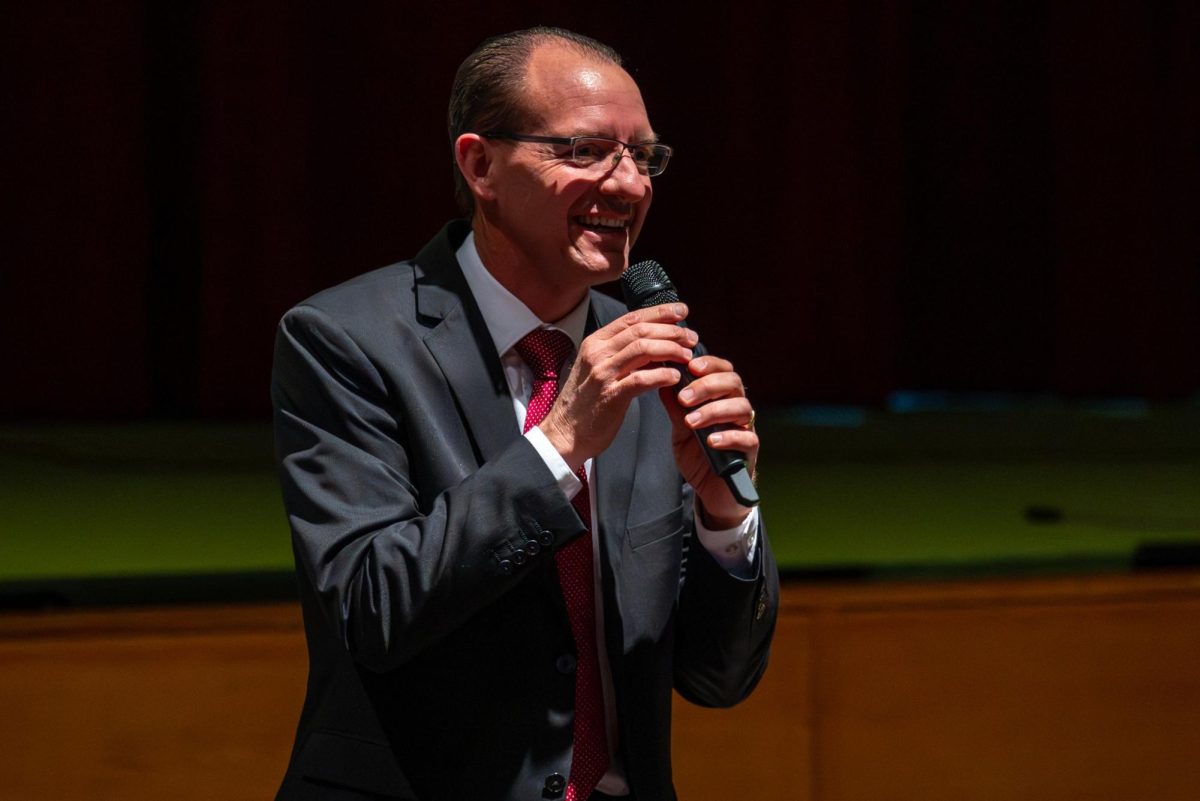
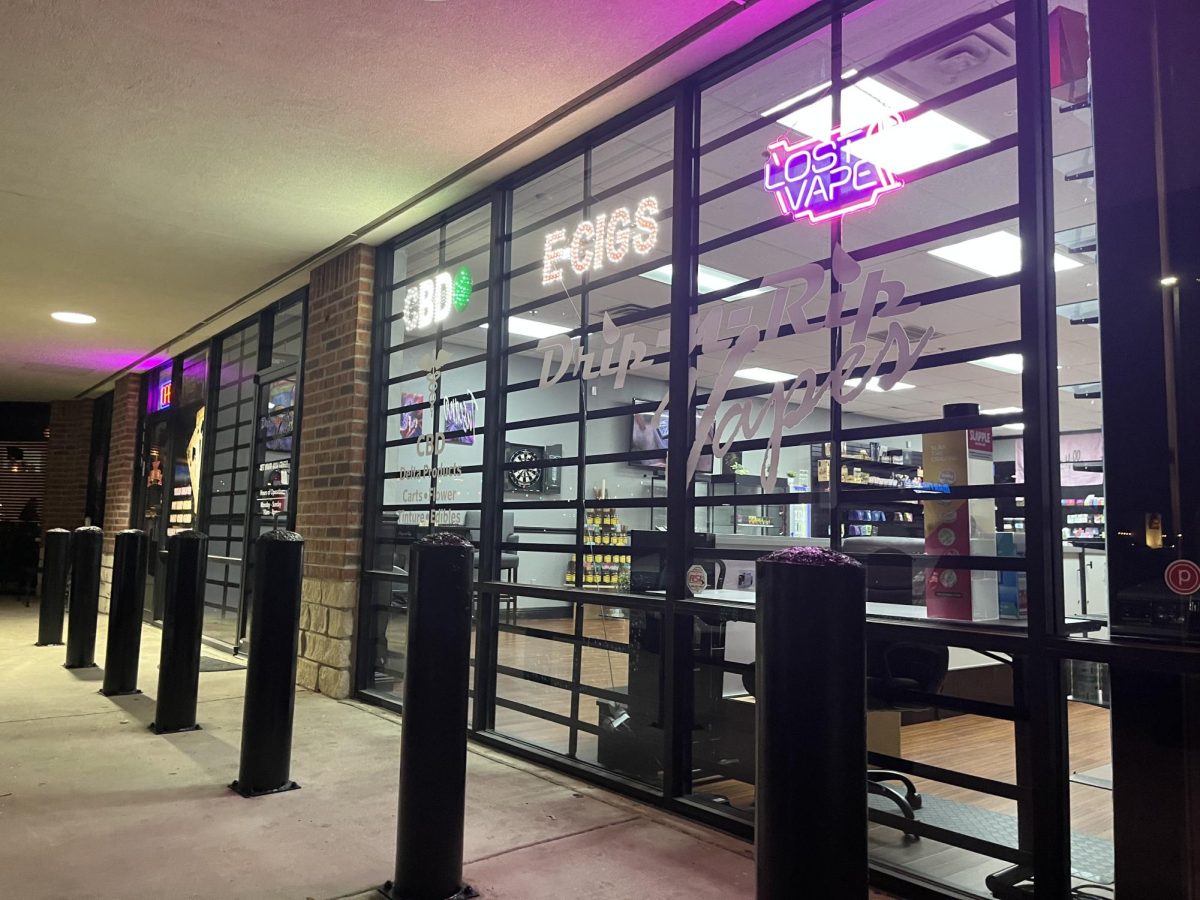
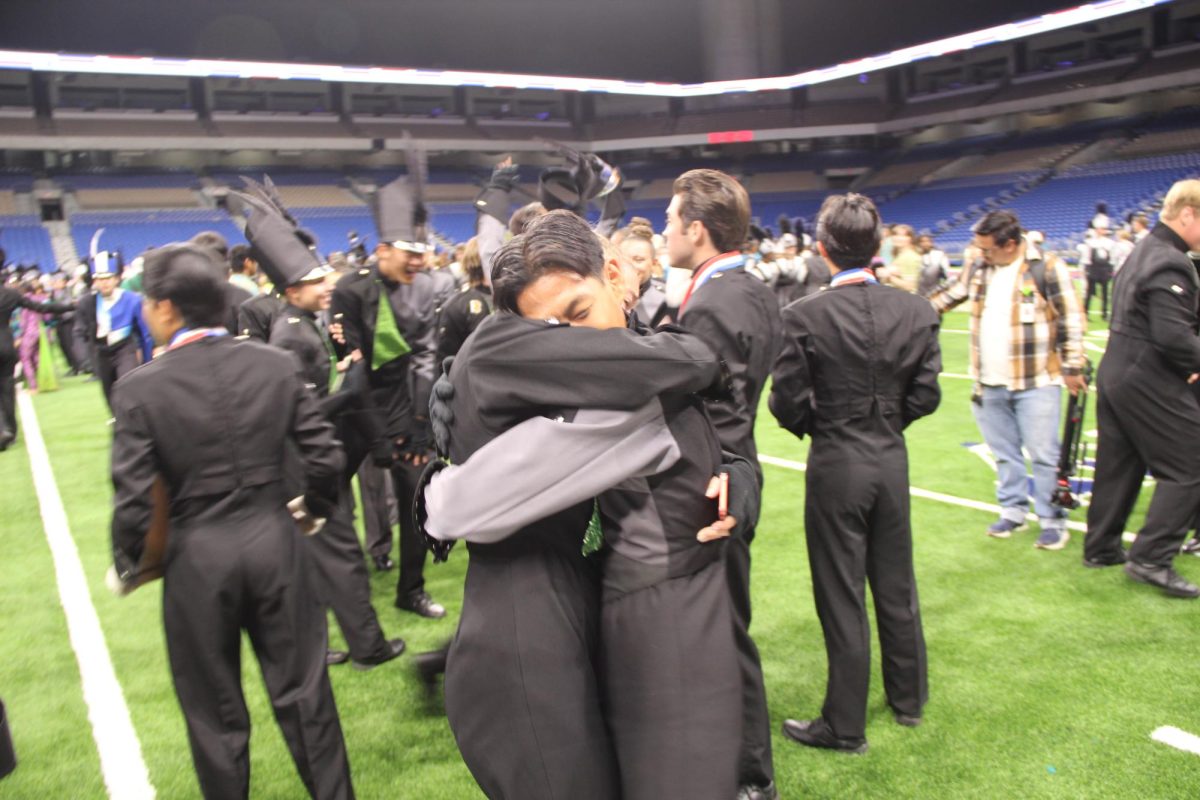
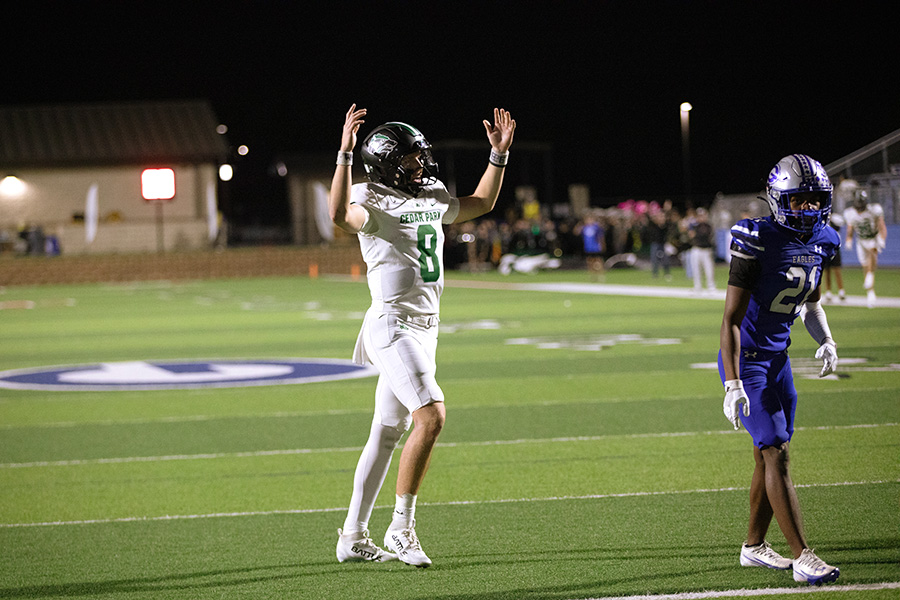
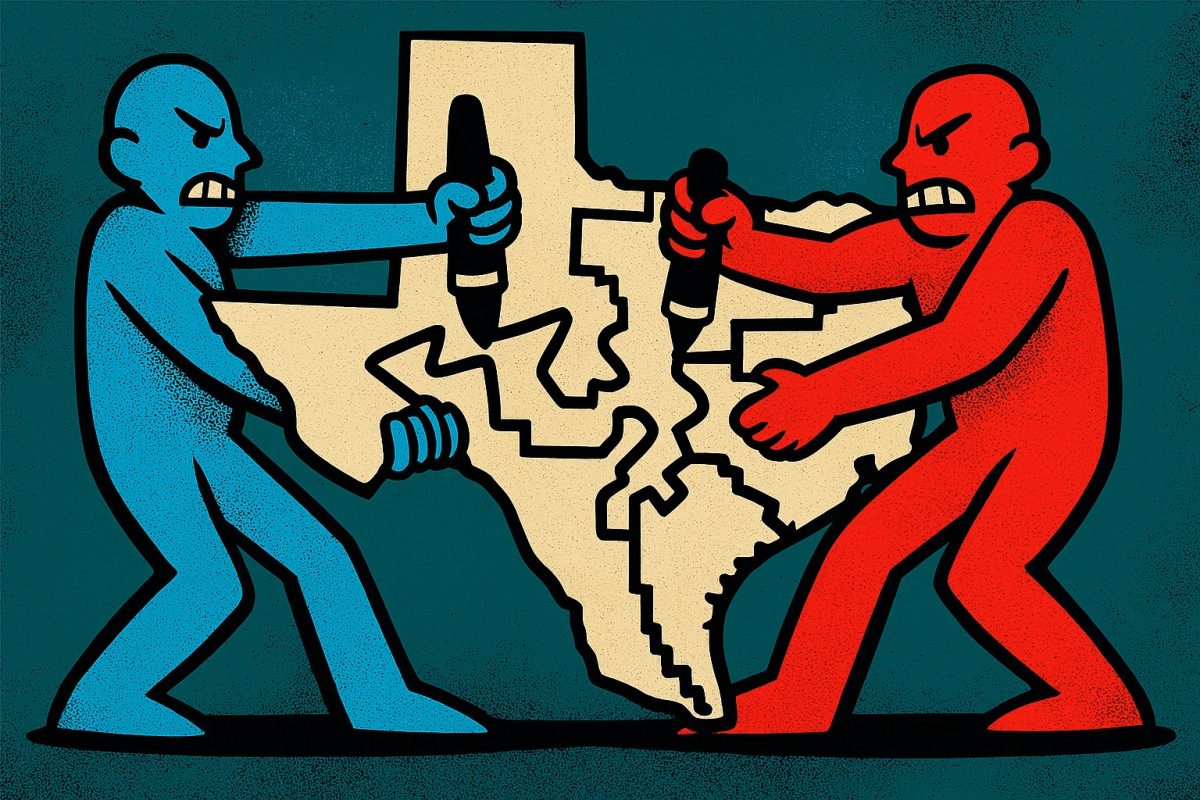
![Senior Jett Mckinney stores all the clothes in his own room, with half of it stored in his closet along with his personal clothes, and the rest taking up space in his room.
“There’s been times [when] there’s so much clothing stored here and it gets overwhelming, so I end up having to sleep somewhere else in the house,” Mckinney said.](https://cphswolfpack.com/wp-content/uploads/2025/11/DSC_0951-1200x800.jpg)
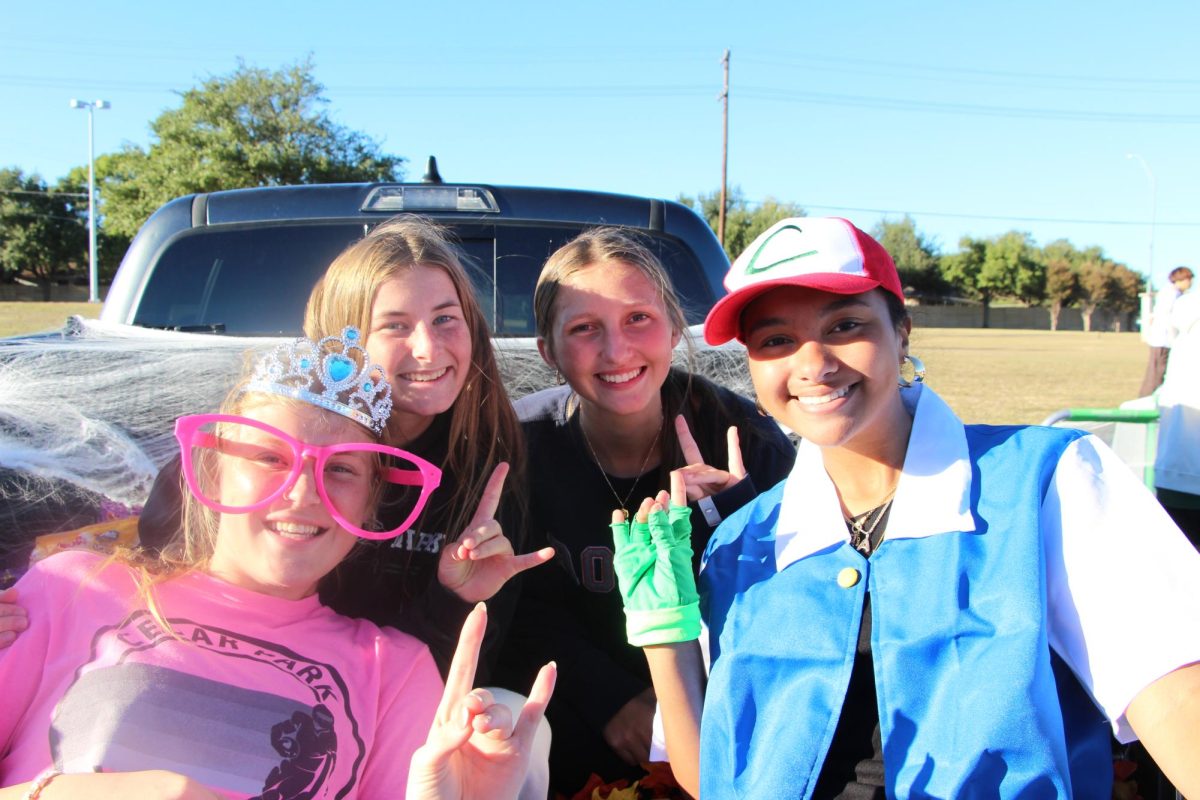


![Broadcast, yearbook and newspaper combined for 66 Interscholastic League Press Conference awards this year. Yearbook won 43, newspaper won 14 and broadcast took home nine. “I think [the ILPC awards] are a great way to give the kids some acknowledgement for all of their hard work,” newspaper and yearbook adviser Paige Hert said. “They typically spend the year covering everyone else’s big moments, so it’s really cool for them to be celebrated so many times and in so many different ways.”](https://cphswolfpack.com/wp-content/uploads/2025/05/edited-ILPC.jpg)

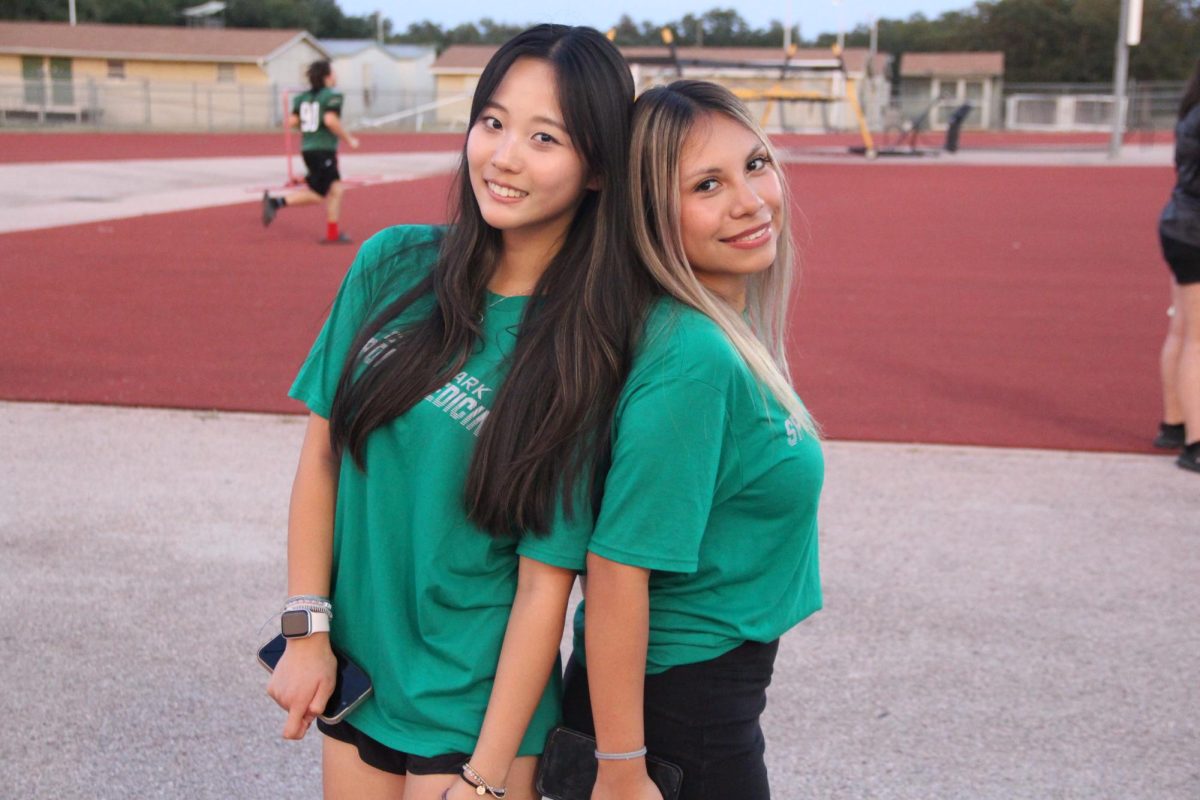


![Looking down at his racket, junior Hasun Nguyen hits the green tennis ball. Hasun has played tennis since he was 9 years old, and he is on the varsity team. "I feel like it’s not really appreciated in America as much, but [tennis] is a really competitive and mentally challenging sport,” Nguyen said. “I’m really level-headed and can keep my cool during a match, and that helps me play a bit better under pressure.” Photo by Kyra Cox](https://cphswolfpack.com/wp-content/uploads/2025/09/hasun.jpg)

![Bringing her arm over her head and taking a quick breath, junior Lauren Lucas swims the final laps of the 500 freestyle at the regionals swimming competition on date. Lucas broke the school’s 18-year-old record for the 500 freestyle at regionals and again at state with a time of 4:58.63. “I’d had my eye on that 500 record since my freshman year, so I was really excited to see if I could get it at regionals or districts,” Lucas said. “ State is always a really fun experience and medaling for the first time was really great. It was a very very tight race, [so] I was a bit surprised [that I medaled]. [There were] a lot of fast girls at the meet in general, [and] it was like a dogfight back and forth, back and forth.” Photo by Kaydence Wilkinson](https://cphswolfpack.com/wp-content/uploads/2025/03/Kaydence-2.7-23-edit-2.jpg)
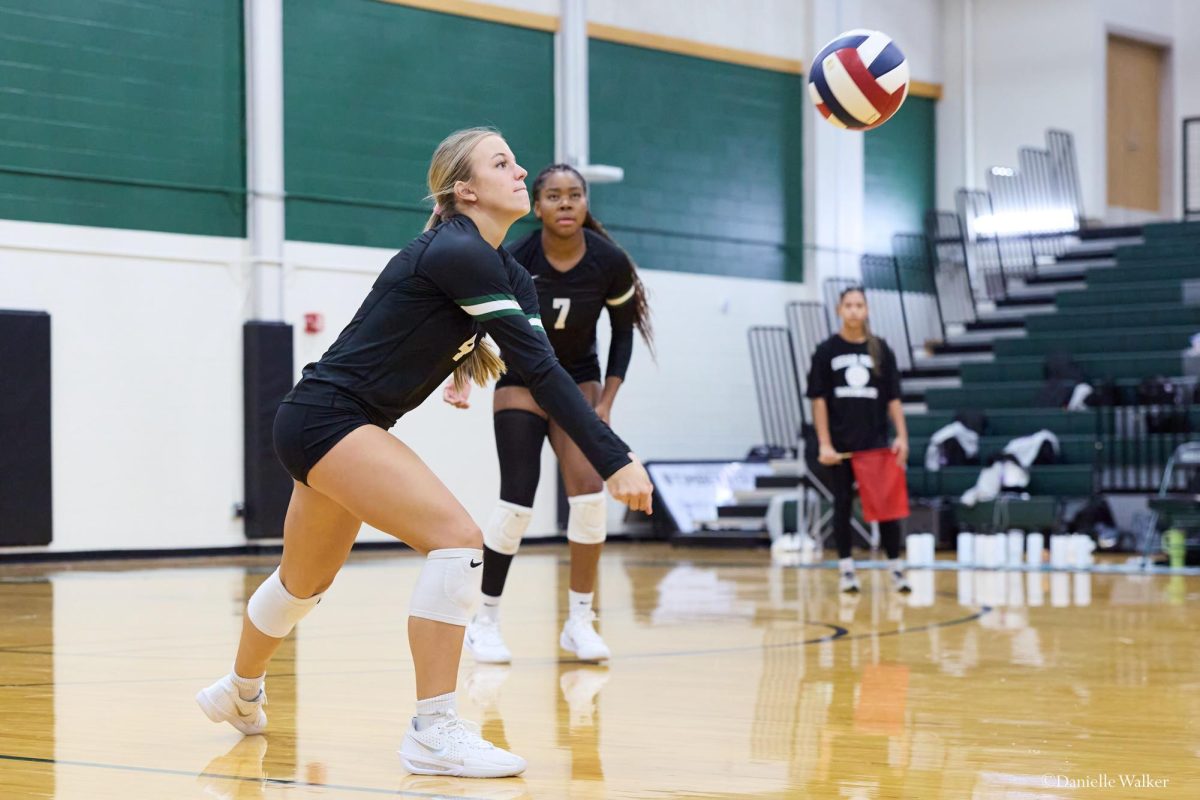

![As her hair blows in the wind, senior Brianna Grandow runs the varsity girls 5K at the cross country district meet last Thursday. Grandow finished fourth in the event and led the varsity girls to regionals with a third place placement as a team. “I’m very excited [to go to regionals],” Grandow said. “I’m excited to race in Corpus Christi, and we get to go to the beach, so that’s really awesome.” Photo by Addison Bruce](https://cphswolfpack.com/wp-content/uploads/2025/10/brianna.jpg)

